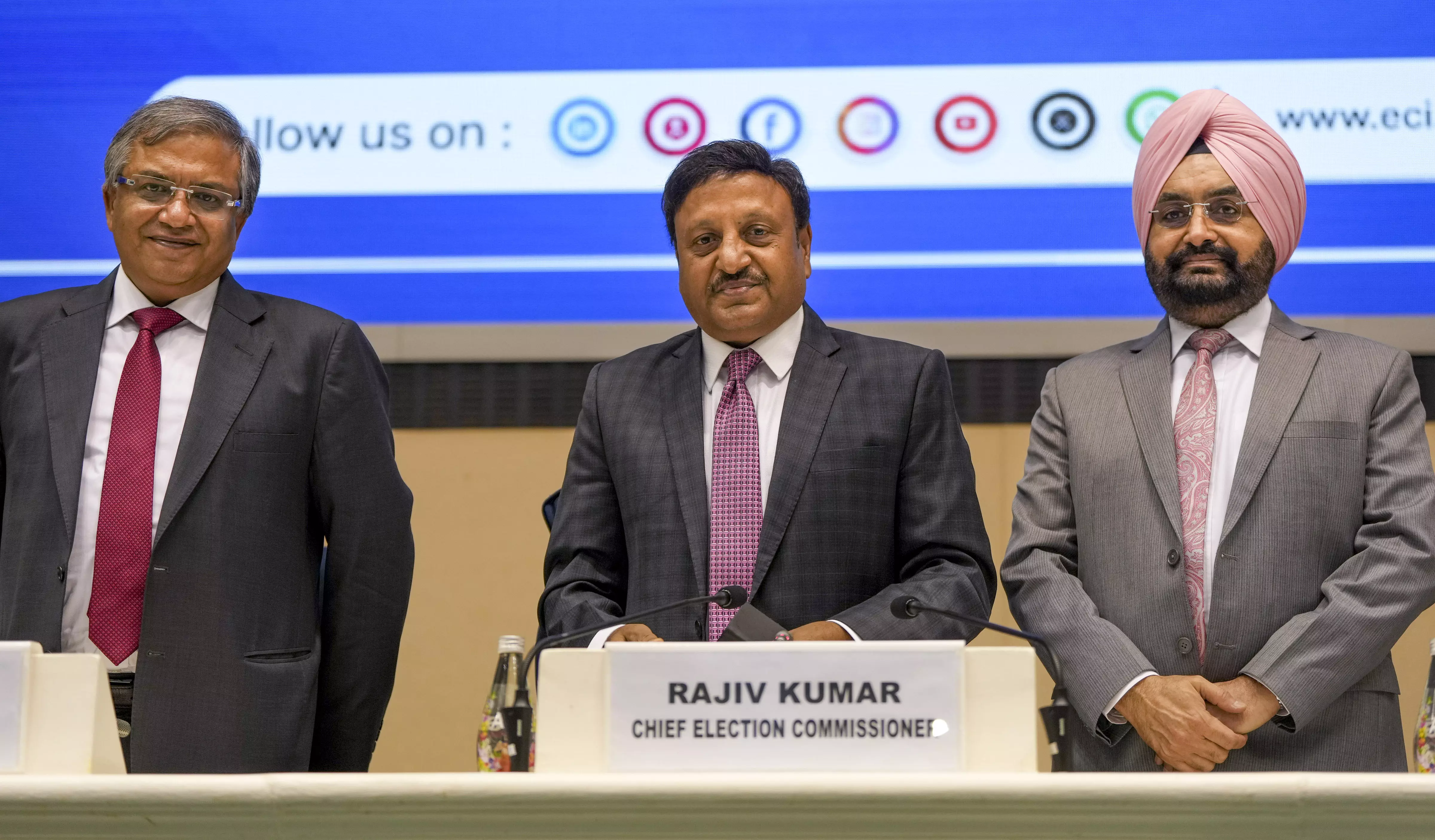AA Edit | Elections in J&K after 10 years momentous

Fixing the dates for the elections to the Assembly of the Union Territory of Jammu & Kashmir and paving the way for the return of democracy to the Valley is a momentous step that is to be wholeheartedly welcomed, however complex a process it might prove to be. To hold polls, albeit after the prompting of the Supreme Court in placing a deadline, and ensure that the people of J&K have a direct say in governance and to swear in a popularly elected government is the representative way and the Indian way of upholding democratic values.
It is the right step forward irrespective of what the changed status has meant in the last five years after New Delhi abrogated Article 370 that had granted special autonomy to J&K. The arguments can be endless over the propriety of going back on a historical commitment, but there is no denying that democracy is now slated to return to a more egalitarian region, even if it has been divided into two UTs of J&K and Ladakh.
There is no arguing against the logic of direct strategic control of Ladakh where India must live face to face with a hostile northern neighbour in China eyeing its territory. But to bring back popular rule to J&K was a no brainer; it had to be done to preserve the principles that brought freedom to the country and to a region whose king chose to be with India at the time of British-sponsored Partition.
The ground reality of security concerns amid sponsored terror from another prickly neighbour in Pakistan, which shares a Line of Control with J&K, may not change even if elected representatives run the J&K government in Srinagar. However, an ideal scenario would be a popular government in place in today’s J&K in which the police will oversee law & order and the Indian Army would be free to secure the border.
It would be too simplistic to say that Article 370 was abrogated only to fully integrate J&K into India. Doing away with the special status came at the cost of a huge political and social upheaval with international ramifications. Long-term stability and prosperity of the region can, however, be assured if a popular government is in charge and works for the development of the place rather than indulge in partisan politics and keep sniping at the Centre from a place that has been an integral part of India all along after independence.
The holding of the District Development Council (DDC) polls in December 2020 and the Lok Sabha polls last April-May without a scare from imported or homegrown terror provided proof it is perfectly possible to hold polls in J&K without having to trot out the excuse of terror threats. Three-phase polls on September 18 and 25, and October 1 with due consideration for the logistics of deployment of forces for orderly conduct in J&K — the Haryana polls will be held on a single day on October 1 — makes perfect sense.
From here it is up to the people of J&K to place their trust in the Indian election system and vote without fear and realise their dream of being able to elect their own representatives. Some laws may have changed in empowering the lieutenant governor of the UT more, but it is a significant political milestone that J&K and India will be crossing soon in giving the people a direct say in local development and governance.
